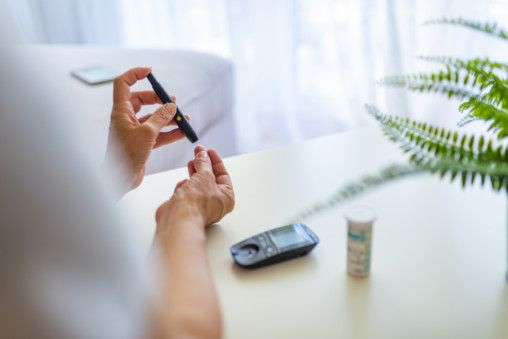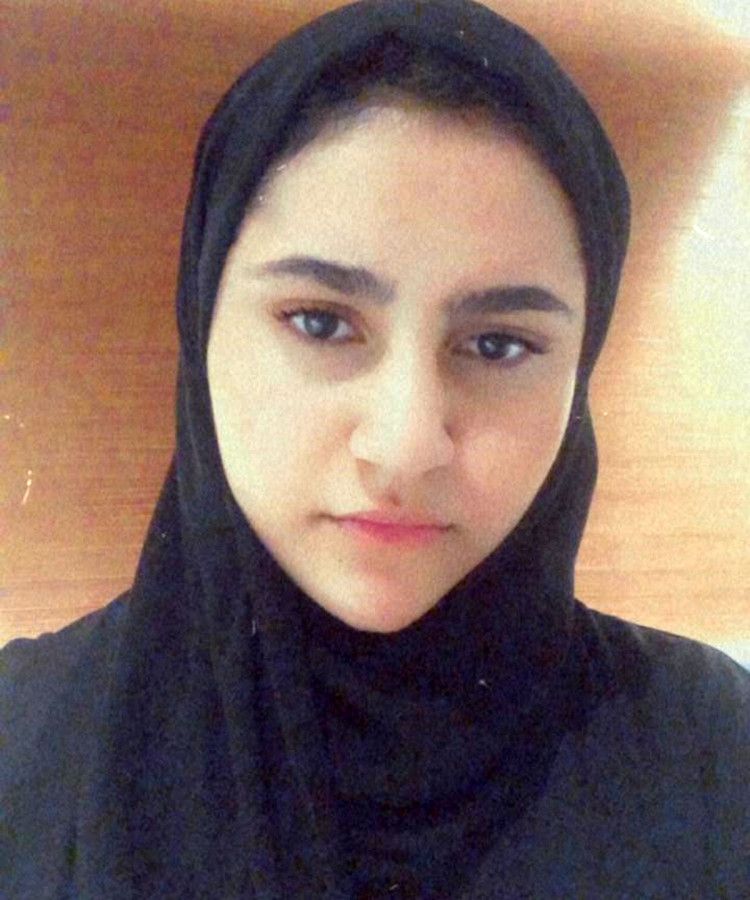Emirati girl talks about battle with Type I diabetes and enrols to be a doctor in UAE
[ad_1]

Image Credit: Getty Images/iStockphoto
Dubai: As academic institutions opened across the UAE last week, Hamda Mohammad Yousef Mohammad Al Hammadi, who recently completed her grade 12 from an American curriculum school in Sharjah, stood out at the medical faculty of Sharjah University.
Enrolling in the first year of medicine, this 17 year old, who suffers from Type I diabetes, dreams of completing her degree and specialising in endocrinology to be able to help thousands of children like her.

Admitted to hospital every other week
For more than four years since the age of 13, Al Hammadi has been waging a battle to gain control over her condition. She told Gulf News: “At the beginning, when I was diagnosed with Type 1 diabetes, I was too young to understand its full impact. I refused to comply with the doctor’s or nutritionist’s instructions and would be in hospital with high sugar and high magnesium levels every other week. Those endless visits to the hospital, the insulin injections and my high sugars were taking their toll. I had put on some weight, had sugar cravings, I could not count my calories and I ate whenever I felt like and felt extreme fatigue, exhaustion and in the five years could see many other complications arising out of my condition.”
A challenging case
Her physician, Dr Naguib Mohammad Abdul Rahim, paediatrician with a specialisation in juvenile diabetes at the University Hospital of Sharjah recalled her case: “Type 1 diabetes is a very complex condition where a child swings between high and low blood sugar levels. So fasting and eating both cause complications and it requires a complete team effort from the doctor, nurses, parents and the patient himself or herself to be able to manage this. In Al Hammadi’s case, she was too young to understand and she refused to cooperate. So every other week she would be admitted to the hospital with diabetes keto acidosis. This is a condition typical in diabetics, especially those with Type 1 diabetes with poor control of blood sugar. When your cells don’t get the glucose they need for energy, your body begins to burn fat for energy, which produces ketones. This can lead the patient into a coma and even cause death if too much fat is burned instead of sugar for releasing energy.”
Strong resolve, better control
However, after visiting many doctors and clinics, Al Hammadi realised that she would have to live with Type 1 diabetes. So she decided to get a grasp on her health. “In the last two years, I decided to listen to the nutritionist and alter my food habits. I began counting my calories and eating small portion sizes, after measuring my blood sugar and insulin levels, as directed by my doctor and nutritionist. I had the insulin pump installed subcutaneously in my abdomen and with my monitor I am able to check on my blood sugar. The pump automatically releases insulin according to the needs of my body and during my meals releases a bolus shot. This has helped me better control my blood sugar. The constant monitoring and the meal plans have helped me gain control over my cravings. I began exercising and felt happy and healthy. I realised many children like me would be battling this condition and I decided to study medicine to be able to help other kids. I have been greatly impressed with the way my country has dealt with the COVID-19 challenge and I wish to join the ranks of this ‘white military’ (health-care warriors) to serve my country better.”
Type 1 diabetics can live a normal life
Dr Abdul Rahim added: “I am so proud of Hamda. From a noncompliant adolescent girl she has turned into this well-informed and mature girl who has worked hard to gain this amazing control over her blood sugar levels. I would like to tell patients out there that a condition like this can be managed only with excellent team work and understanding between the doctor, the diabetes educator, the psychological counsellor, the nutritionist, the family of the patient and the patient herself. The entire team needs to be very understanding and extremely patient with the person in question. In Hamda’s case, now she has the diabetic pump, which too couldn’t have been installed without complete understanding and support from her family and her own cooperation. Prior to this, she was taking up to four insulin injections each day, which was quite painful. Hamda’s case holds out hope for many other Type 1 diabetics in UAE.”
Hamda concluded: “I want other kids to know that they need not lose hope when diagnosed with Type I diabetes. It is a challenge to live with this, but with the right guidance from our doctors and nutritionists and our own determination, it is possible to live a normal life and fulfil all our dreams. “
What is Type 1 diabetes?
Type 1 diabetes, once known as juvenile diabetes or insulin-dependent diabetes, is a chronic genetic condition in which the pancreas produces little or no insulin. Insulin is a hormone needed to allow sugar (glucose) to enter cells to produce energy. Children who are diagnosed with Type 1 diabetes are required to monitor their blood sugar levels and take insulin injections.
[ad_2]
Source link


